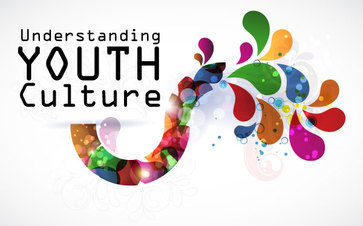This is a letter I wrote and posted on Facebook after a young man in our community who many of our students knew took his own life.
----------
Suicide.
It’s not something we like to think about, and when we are faced with the reality of it, as many of you have been over the last week, it causes us to ask many questions.
“WHY did this happen?”
“Could I have done or said anything to prevent this?”
“Is this my fault?”
“Is my friend in Hell because they committed suicide?”
“IS suicide an option when it seems like there is no other way out?”
When dealing with the suicide of a friend or someone you know, it’s normal to grieve and to ask questions like the ones above. There is never anything wrong with asking questions and putting words to the emotions you are feeling inside. You NEED to work through those and talk to someone who you can trust and be open with.
Let me encourage you with a few thoughts.
#1 - You will never have all the answers. The “why” question is often the most difficult one to deal with, because suicide, by its very nature, leaves many questions unanswered. They say that hindsight is 20/20, and you may in fact look back and see many warning signs in your friend’s life, but know that when a person reaches the point of taking his or her own life, there is a lot more going on than what you or I see on the surface. There are so many layers of doubt, depression, loneliness, hopelessness, etc., and often even psychological or physiological issues at play, and we will never know in this life all the reasons “why”. As hard as it is, we have to bit-by-bit let go of our desire to completely understand what happened.
#2 - It’s not your fault. Like asking “why”, looking back and thinking of all the things you did or didn’t do that might have saved your friend is ultimately a futile exercise. All the “what if’s” in the world won’t bring him or her back, and they often lead instead to feelings of guilt or blame, both of which are unhealthy. If you must ask “what if”, do it with a group of friends, or a youth group/church group and don’t focus on what you COULD have done but what you WILL do for others in the future.
#3 - Suicide doesn’t send a person straight to Hell. Some religions teach this, but the Bible - which I believe is God’s truth - does not say ANYWHERE that suicide is an unforgivable sin. I believe that there are Christians who have taken their own lives who will, by God’s grace and mercy, be in Heaven. Ultimately, the issue isn’t how your friend’s life ended, but whether or not they put their faith in Jesus as Savior. Never forget that we are not a people of despair, but of hope!
#4 - God has a purpose for all of us. If you have ever had suicidal thoughts, or you see that your friend has “escaped” the troubles of this life and you wonder if it really is a way out, I want you to always remember one thing: You are here for a reason! God has a plan for each and every one of us, and the first part of that plan is that we would find our faith, our strength, and our hope in relationship with Him through His Son Jesus. I hope you know what I’m talking about because YOU have that relationship, but if you don’t, let me ask you - what do you stand on when everything in this life falls apart? What is your foundation, your solid ground? We all need something - SOMEONE - greater than ourselves to hold us up when the brokenness of this life pushes us down. Do you have that? Do you know that kind of strength, that kind of hope? If you don’t, I encourage you to talk to someone you know who is a Christian or even pick up a Bible and start reading the book of John. If you are a Christian and still struggle with thoughts of depression or even suicide, find someone to talk to and remember God’s promise in Jeremiah 29:11 - “For I know the plans I have for you,” declares the Lord, “plans to prosper you and not to harm you, plans to give you hope and a future.”
Suicide.
It’s a terrible, awful thing, and a reminder to me of how broken this world that we live in is. I grieve for the loss of life and also the loss of potential - of all that those who choose to take their own life could have done to escape the darkness and then reach out to those still trapped in it with the hope of a better tomorrow. My heart breaks for those left behind who have to struggle with all the unanswered questions.
But more than any of that, I still remain hopeful, because there is One who is bigger than loneliness, bigger than hopelessness, bigger than depression, or doubt, or darkness, or death, and my life is in His hands.
----------
If you are having thoughts of suicide or need someone to talk to, you can message me by clicking the "Contact" tab above, or e-mail me at [email protected]. Don't go through this alone!





 RSS Feed
RSS Feed
